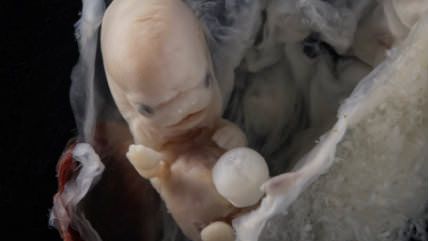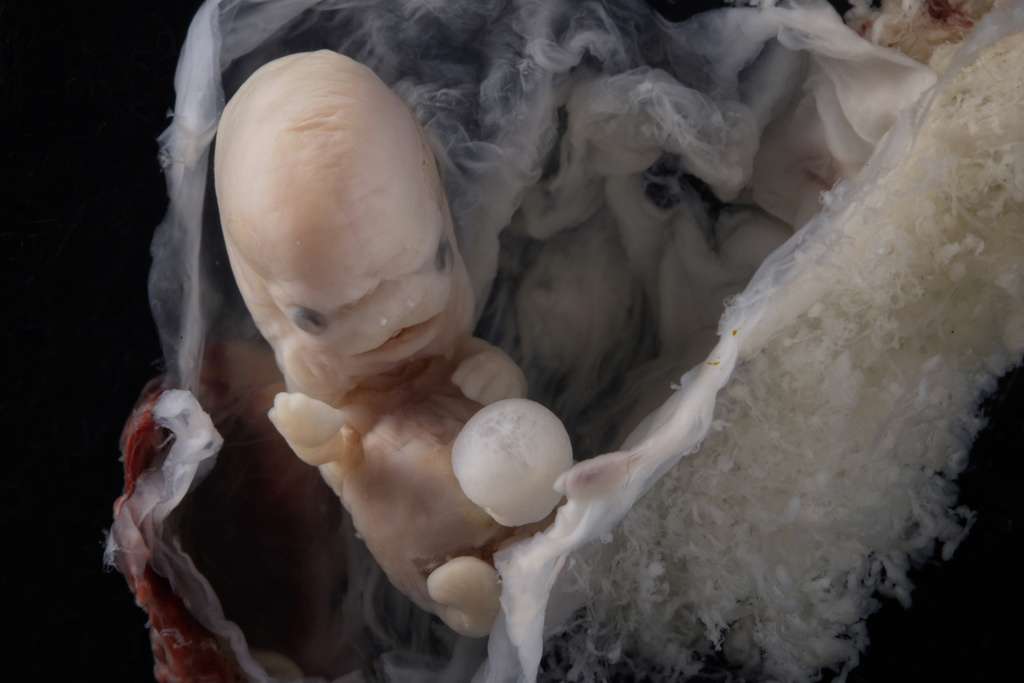Actually We Should Encourage Women Who Have Abortions to Donate Fetal Tissue to Science
Researchers have used fetal tissue in developing lifesaving medical treatments including the polio vaccine.


On Tuesday, a video produced by undercover anti-abortion advocates was released showing Planned Parenthood's Director of Medical Services, Deborah Nucatola, discussing the donation of tissue from aborted fetuses to medical researchers. As you might imagine, outrage followed swiftly. For many in the pro-life camp, this was evidence of "the inhumanity of the entire abortion enterprise." Even some people with both pro-choice and libertarian views condemned the "ghoulishness" of the whole operation. The Washington Post reported today that "a House committee and at least two states have opened investigations into Planned Parenthood" following the video's release.
Maybe my mindless-moral-revulsion factor just isn't finely-tuned enough, but I can't understand why anyone who is 1) not against abortion per se, 2) not against research using human stem cells, and 3) not against organ and tissue donation should suddenly be moved to indignation by the combining of these things. If tissue from fetuses that are going to be aborted anyway might help bring about future medical progress, and the women having abortions fully consent, what's the problem?
Perhaps now is a good time to clear up a few of the untrue statements that are going around about this: No, Planned Parenthood doctors are not doing this without women's consent. (See the consent form Planned Parenthood uses here.) No, Planned Parenthood affiliates are not profiting off aborted fetal tissue—the $30 to $100 Nucatola mentions in the video is what research firms typically reimburse clinics for the cost of storing, shipping, and transporting it. No, Planned Parenthood is not breaking federal law against selling human body parts (which would require, you know, actually selling them).
Some have suggested that Planned Parenthood's actions may be okay, but that Nucatola's "callous" tone is the issue. I'm not sure what to say about this except <eyeroll>. Either you think harvesting tissue from aborted fetuses is wrong, or you don't; the fact that a medical professional doesn't sugarcoat the process when talking about it shouldn't make a difference.
As Vox's Sarah Kliff points out, "fetal tissue has historically played an important role in scientific research because of fetal cells' ability to rapidly divide and adapt to new environments. In the 1980s and 1990s, researchers had looked at fetal tissue transplants as a possible treatment for Parkinson's disease and diabetes." Researchers also used fetal tissue in developing multiple vaccines, including the Rubella and polio vaccines.
In the tradeoff between possibly of saving untold lives versus the visceral ickiness one might feel about harvesting fetal tissue, it's sad to me that so many people put more import on the latter.
On Twitter, this has devolved into a digital shouting match in which one side says they're shocked, sick, and appalled; the other side says hey, we're not; and the first side repeats their shocked, sick, and appalled-ness in an ever escalating manner. As with the abortion debate in general, the pro-life side doesn't seem to get that increasingly graphic imagery and repeated references to "murder" and "Holocaust" and "genocide" will only move people who buy the premises of their argument to begin with. If you don't think a fertilized egg or embryo or fetus has a soul, or rights that trump a pregnant woman's rights, you're unlikely to be moved by arguments that rely on relating these premises in increasingly strong language.
At the risk of being deemed history's greatest monster, I'm not sure why we shouldn't encourage more women (who are already) having abortions to donate the fetal organs and tissue to science. People who say this would encourage more abortions are either being disingenuous or have no understanding of how human nature works (man, I was really psyched about having a child, but now that I know I could give its remains to science, abortion all the way!). Even if you're personally opposed to abortion—even if you think it should be 100 percent illegal—as long as abortion is legal and happening, isn't it better that some good might come out of it?
But as bioethicists noted in an early '90s paper on the issue, for many people "the transplantation of tissue from an electively aborted fetus is morally inseparable from the morality of elective abortion." As Arthur Caplan, head of the Division of Medical Ethics at New York University and one of the study's authors, told Vox: "For critics of abortion, the idea of making something good from something they see as inherently evil is not something they have room for."


Show Comments (479)